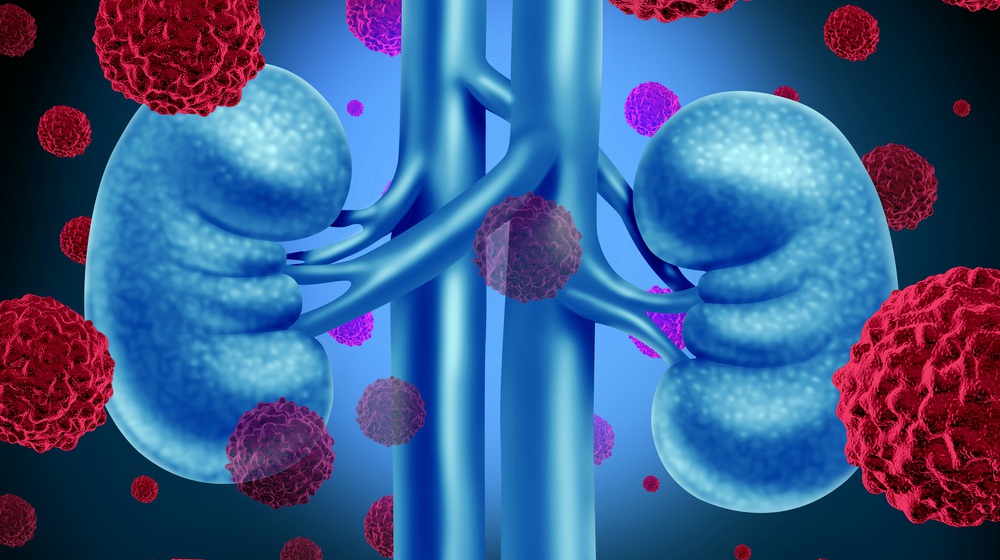Find out how a stem cell transplant can contribute to kidney cancer treatment in the article below. In this article:
- What Is Kidney Cancer?
- Who is at Risk of Kidney Cancer?
- Does Stem Cell Therapy Provide a Future for Kidney Cancer Treatment?
- How Do Stem Cells Work in Treating Renal Cancer?
- Is There a Risk for Stem Cell Transplant in Treating Kidney Cancer?
The Future of Stem Cells for Kidney Cancer Treatment?
Kidney or renal cancer is a condition where kidney cells develop abnormally and become cancerous, allowing the formation of a tumor. Kidney cancers usually first appear in the lining of the kidney’s tiny tubes. This is called renal cell carcinoma.
The good thing about these cancers is they can be found before they can spread to other organs. This means kidney cancer treatment is easily applicable.
In many cases, people with this condition experience no early signs of kidney cancer. But, as the tumor grows bigger, kidney cancer symptoms may appear, such as the following:
- inflammation in the legs or ankles
- anemia
- extreme fatigue
- fever that stays for weeks, which is not caused by an infection or a cold
- sudden, inexplicable weight loss
- pain in the side that does not alleviate
- loss of appetite
- a lump in the abdomen or the side of the torso
- blood in the urine
Who is at Risk of Kidney Cancer?
According to the American Cancer Society, men have a higher risk of developing kidney cancer. In 2018, there were a total of 63,340 new cases recorded, with 42,680 of them being men. Unfortunately, about 14,970 of the total cases will eventually succumb to the disease. These figures already include all types of kidney cancer.
In most cases, those with kidney cancer are older (above 50 years old). Male smokers are at a special risk for this condition. The lifetime risk of developing renal cancer is 1 in 48 men and 1 in 83 women.
But, as technology plays an important role in treating cancer in general, the death rates for kidney cancer have slightly declined since the mid-1990s.
Does Stem Cell Therapy Provide a Future for Kidney Cancer Treatment?
A small study on treating advanced kidney cancer using stem cells was conducted on 19 patients. The participants were at the end stages of renal cancer, meaning it had already spread throughout the body. At this point, there is only a 20% survival rate.
Fifty percent of the patients who received the therapy survived the year, and 10% showed other improvements. This served to show that stem cells indeed have a future in kidney cancer management and treatment.
How Do Stem Cells Work in Treating Renal Cancer?
In kidney cancer treatment, the stem cell procedure works by first suppressing the patient’s immune system. This allows the immune system to accept the transplanted donor stem cells taken from the blood of the patient’s sibling.
The blood stem cells are transplanted through the patient’s veins, to allow them to develop into lymphocytes as they help fight against cancer cells. This process is called the graft-versus-tumor effect.
Doctors have already used this procedure to fight leukemia. But, treating kidney cancer using blood stem cells in the previously mentioned small study was the first time the procedure was proven effective against a solid type of cancer.
Is There a Risk for Stem Cell Transplant in Treating Kidney Cancer?
Although stem cells promise a potential treatment alternative for kidney cancer, it does have potential risks. Two of the participants in the same study died from the transplant’s complications.
Half of them suffered from graft-versus-host disease when the stem cells transplanted turned against the patients’ body. Eight of the participants also died as their condition progressed.
To learn more about stem cells, watch this video by BioInformant:
Stem cell transplant can be used as a kidney cancer treatment. But, the fact that it still needs further investigation and research is an important consideration to take note. Regardless, scientists and researchers will definitely look into this further to make stem cells safe for curing renal cancer.
